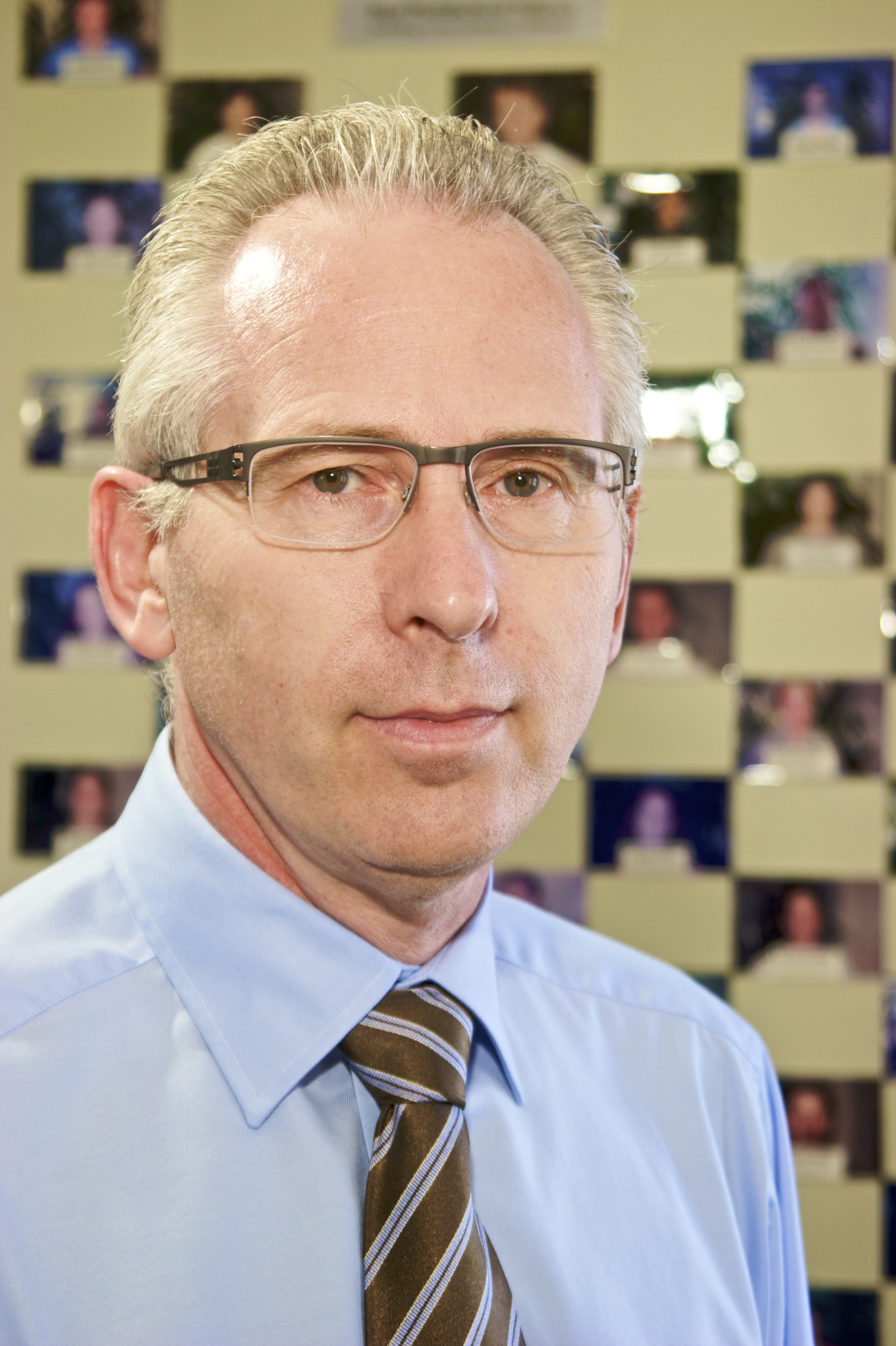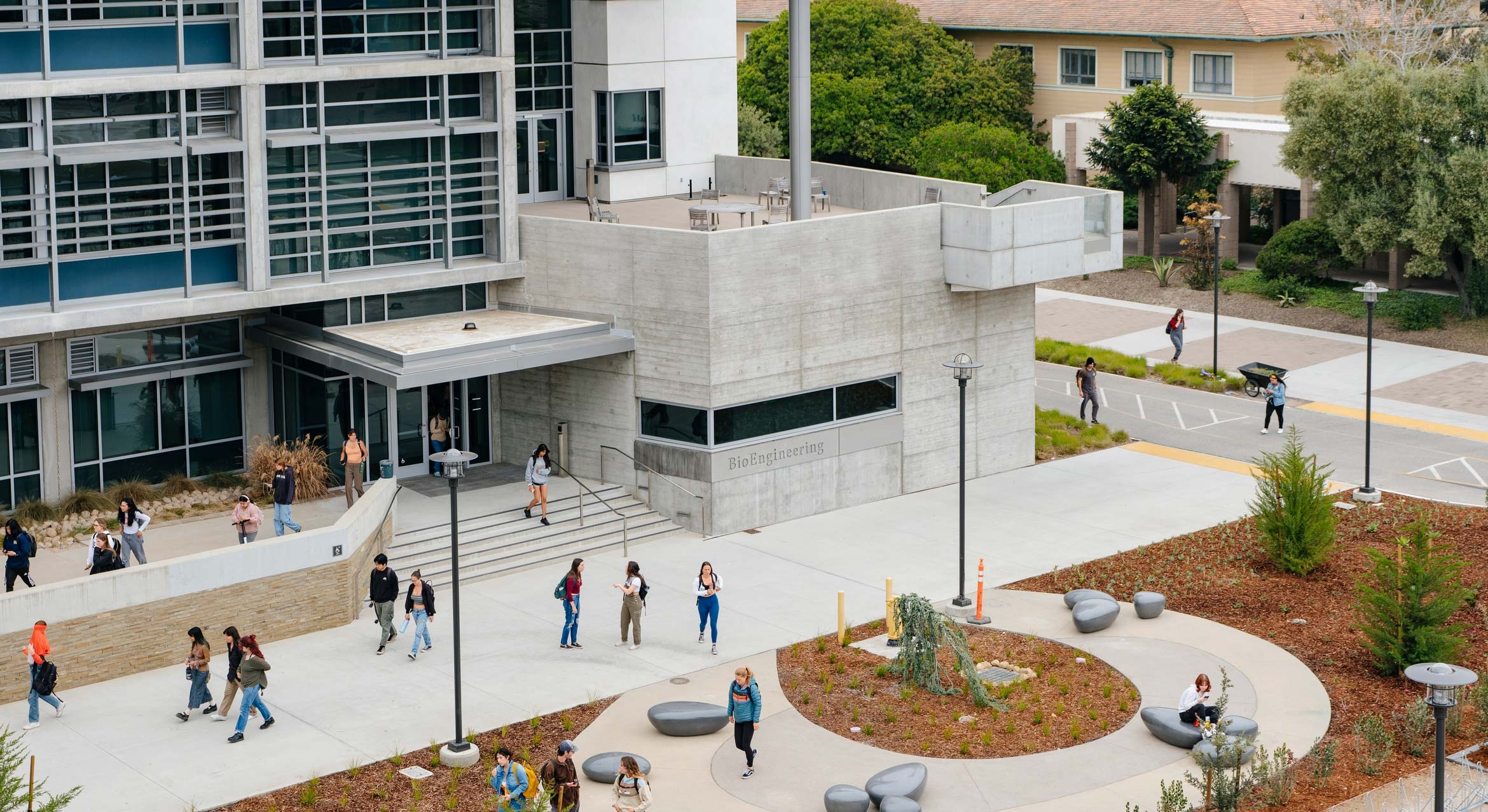
McCauley is New Director of UCSB's National Center for Ecological Analysis and Synthesis
Edward McCauley, who was recently named the new director of UC Santa Barbara's National Center for Ecological Analysis and Synthesis, understands why NCEAS has been recognized as a pioneering research institution since it started in 1995.
"One of the key elements that was identified as to why NCEAS has been such a huge success is this sense of place," McCauley said in an interview. "NCEAS provides an environment where scientists can come to neutral ground and where we can provide the infrastructure and support necessary for their work. NCEAS is a special place, in a highly attractive setting, where visitors are freed from the pressures of their local environments and can concentrate on the exchange of ideas and the development of new insights."
Located off campus in the Balboa Building in downtown Santa Barbara, NCEAS brings scientists from around the world to Santa Barbara to do data analysis and synthesis on a wide variety of ecological subjects, such as species extinction rates and the impact of humans on the oceans.
McCauley, who joined NCEAS in January, comes to UCSB from the University of Calgary, where he was a professor in the Department of Biological Sciences. He is known as a leader in both research and administration.
"We are delighted to welcome Professor Ed McCauley as the next director of UC Santa Barbara's highly regarded National Center for Ecological Analysis and Synthesis," UCSB Chancellor Henry T. Yang said. "We are proud that NCEAS is ranked as one of the top scientific institutions in the world for the impact and citation rate of its research publications in ecology and the environment. Dr. McCauley's distinguished record of research, teaching, and administrative leadership, combined with his collaborative, multi-disciplinary approach to the research and practice of ecology, make him the ideal fit for this unique national center."
McCauley received his Ph.D. in 1983 from McGill University in Montreal before joining UCSB as a postdoctoral fellow and research biologist. He was hired at University of Calgary in 1985. He is a Fellow of the Royal Society of Canada, among other distinctions.
Michael Witherell, vice chancellor for research at UCSB, said: "Since it was established in 1995 by the National Science Foundation, the National Center for Ecological Analysis and Synthesis has led a fundamental transformation in the study of ecology, and NCEAS clones have been created around the world in recognition of its success. All of us at UC Santa Barbara took very seriously our responsibility to recruit a new NCEAS director who is up to the task of leading the ecological community as this transformation continues. Ed McCauley meets this very high standard."
The interim director of NCEAS, William Murdoch, who passed the baton to McCauley, said: "We are extremely fortunate to have attracted Professor Ed McCauley to be the new NCEAS director.
He comes not only with a superb career in research and teaching, but is an exceptional leader and administrator.
In his 20 years at University of Calgary, he has won grants worth tens of millions of dollars that have created interdisciplinary research centers and major new research facilities. Professor McCauley has directed the research of these multi-disciplinary initiatives to solve difficult problems related to water use and quality –– problems being faced globally."
The National Science Foundation (NSF) has funded NCEAS for 15 years, much longer than originally anticipated. Now, McCauley is working to submit a proposal to NSF for an Environmental Synthesis Center, to be based at UCSB. If UCSB receives the new grant, the new center will foster synthetic, collaborative, cross-disciplinary efforts to understand and predict the complex interactions among ecological populations, communities and ecosystems, the geophysical environment, and human actions that underlie global environmental change.
McCauley said that the proposal that he is developing for the new environmental synthesis center is not "NCEAS revisited," but will build on the type of work that NCEAS is famous for, along with the deep involvement of other disciplines. He explained that the new center will look at the ways in which environmental changes will influence ecosystems and social systems, and how humanity might adapt to climate change.
"We will try to decrease the time between knowledge creation and its application, to solve important environmental problems," said McCauley. He mentioned that the ideas for the new proposal have benefitted greatly from input by faculty from UCSB's Bren School for Environmental Science & Management, the Department of Ecology, Evolution, and Marine Biology, as well as the Department of Geography and Division of Social Sciences. He said that the approach to informatics and data management developed at NCEAS will be important if UCSB is awarded the grant for
the new Environmental Synthesis Center.
Related Links



